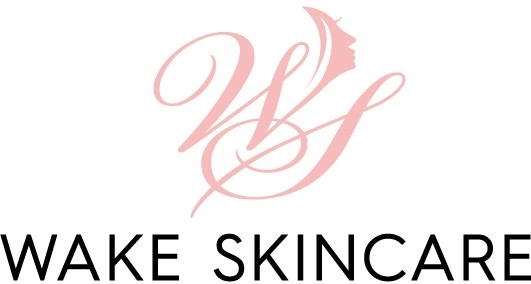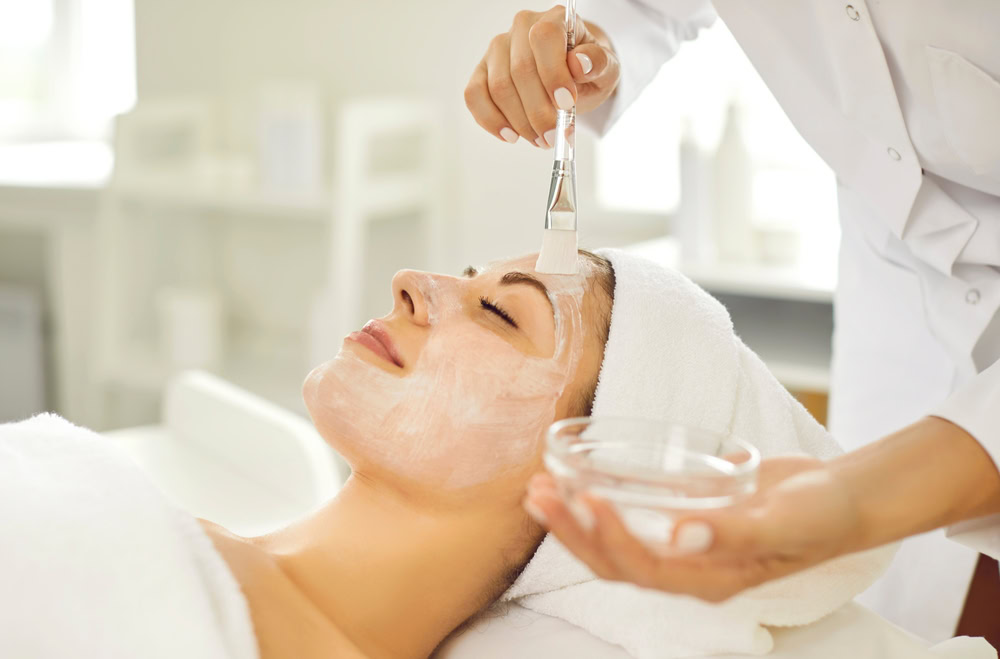Summary:
The Science Behind Proven Anti-Aging Ingredients
As skin ages, it undergoes cellular changes, primarily a reduction in collagen and elastin, resulting in sagging and wrinkles. Effective anti-aging products focus on ingredients that counter these effects at the cellular level. Understanding how your skin ages helps you choose ingredients that target the root causes rather than just masking symptoms.
As we age, our skin undergoes significant changes, including a decrease in collagen production, loss of elasticity, and a reduction in moisture levels. Understanding these changes is crucial when selecting effective anti-aging ingredients. The most effective ingredients work by stimulating cellular renewal, protecting against environmental damage, and supporting your skin’s natural repair processes.
Choosing ingredients should be based on solid scientific evidence, dermatologist recommendations, user reviews, and safety profiles. This approach ensures you’re investing in ingredients that deliver measurable results rather than falling for trendy but unproven compounds.
Retinol: The Gold Standard for Anti-Aging Results
Retinol is the king of anti-aging ingredients, with dermatologists and beauty experts as its loyal subjects and results that speak for themselves. This vitamin A derivative has earned its reputation through decades of clinical research and consistent results that you can actually see and feel.
Retinol has a great ability to renew the skin surface, helping to minimize the appearance of wrinkles, lines and dark spots as well as giving luminosity, reducing the look of open pores and fading imperfections. What makes retinol so effective is its ability to penetrate deep into your skin and communicate directly with your cells, telling them to behave like younger, healthier cells.
Aging can contribute to gradual loss of vitamin A, which naturally occurs in the skin. This can be replenished by vitamin A derivatives, known as topical retinoids. Topical retinoids, such as retinol and adapalene, are available over the counter and have been shown to significantly improve fine wrinkles, likely due to increased skin collagen thickness with prolonged use.
The key to retinol success lies in starting slowly and building tolerance. You should gradually incorporate it into your evening skincare routine and use no more than a pea-sized amount to prevent redness and flaking. Most people see initial improvements within 4-6 weeks, with continued enhancement over months of consistent use.
Other benefits of retinoids include improvement of dark spots and reduction of atypical skin cells that could lead to skin cancer. This makes retinol not just a cosmetic ingredient, but a protective one that supports long-term skin health while delivering visible anti-aging benefits.
Vitamin C: Your Skin's Antioxidant Powerhouse
Vitamin C is one of the most frequently searched beauty ingredients on Google and little wonder. This powerhouse antioxidant doesn’t just protect your skin—it actively works to reverse existing damage while preventing future signs of aging.
Vitamin C is a powerful antioxidant and it helps stimulate collagen production, both of which help your skin fight off signs of aging. Just like antioxidants that you get from eating blueberries and other foods, the antioxidant vitamin C helps to fight off free radicals, which damage the integrity of your skin. By counteracting free radicals, vitamin C helps to brighten and soften your skin and reduce fine lines and wrinkles.
What sets vitamin C apart from other ingredients is its dual action approach. Vitamin C helps your body produce collagen, the protein that provides structure, support and strength to your skin, as well as your muscles, bones and connective tissues. Your body naturally produces less collagen as you age, which contributes to crepey, saggy and wrinkled skin. By boosting collagen production, vitamin C helps restore your skin’s structural integrity from within.
Vitamin C brightens skin, reduces hyperpigmentation, and supports collagen synthesis. You’ll notice improved skin tone and texture, with dark spots gradually fading and overall radiance increasing. The brightening effects often become visible within 2-4 weeks of consistent use.
Keep in mind when using Vitamin C in your skincare routine that it is an ingredient that readily reacts to air and light; over time, the color and consistency of the product might change although it typically remains effective. Store your vitamin C products in a cool, dark place and look for stable forms like magnesium ascorbyl phosphate or sodium ascorbyl phosphate for better shelf life.
Hydrating and Barrier-Strengthening Ingredients That Work
Hydrated skin is healthy skin, and healthy skin looks younger. As we age, our skin naturally creates less oil. Including a moisturizing face cream in your routine helps replace those oils. Beyond basic moisturization, certain ingredients actively repair and strengthen your skin’s barrier function while delivering anti-aging benefits.
The most effective hydrating ingredients don’t just sit on your skin’s surface—they work at the cellular level to improve your skin’s ability to retain moisture and protect itself from environmental stressors. Moisturizers can temporarily add some fullness to your skin, helping to reduce those fine lines and wrinkles. Understanding which hydrating ingredients deliver the most anti-aging impact helps you choose products that multitask for your skin.
Hyaluronic Acid: The Ultimate Hydration Hero
Hyaluronic acid needs no introduction. Ideal for all skin types, its extraordinary capacity for attracting and retaining water (up to 1000 times its own weight!) significantly improves the skin’s hydration, supporting its moisture barrier and revealing a visibly plumper, smoother complexion while also fading the appearance of lines and wrinkles.
An important but often overlooked sign of aging skin is dryness. As we age, our skin naturally loses its ability to retain moisture due to decreasing stores of hyaluronic acid, an important component of healthy skin. Replacing hyaluronic acid through topical serums or moisturizers may help to boost overall skin hydration and can also improve the appearance of wrinkles and skin firmness.
What makes hyaluronic acid particularly effective is its molecular versatility. Hyaluronic acid is a humectant naturally found in the skin that can hold up to 1000x its weight in water. This is important considering as we age our skin loses the ability to hold onto water and stay moisturized, causing visible loss of plumpness and suppleness. Hyaluronic acid is a skincare ingredient that can be used on all types of skin, including sensitive skin.
Hyaluronic acid is also an ingredient that is used readily with other ingredients like Retinol and Vitamin C. Formulas with Hyaluronic acid can help visually plump and hydrate the skin, helping to improve the appearance of lines, wrinkles, loss of plumpness, and dehydrated skin. This compatibility makes it an excellent foundation ingredient that enhances the effectiveness of other anti-aging compounds in your routine.
The results with hyaluronic acid are often immediate and improve over time. Your skin appears plumper and more hydrated within hours of application, while continued use helps restore your skin’s natural moisture balance and reduces the appearance of fine lines caused by dehydration.
Niacinamide: The Multi-Tasking Skin Transformer
Niacinamide is an obvious fan favourite. VOGUE dubbed it as the ‘it’ ingredient of 2023 because it’s suitable for all ages and skin types. It’s simply a form of vitamin B3 that’s known to be healing and soothing. This versatile ingredient has gained massive popularity for good reason—it addresses multiple aging concerns simultaneously.
Niacinamide, this water-soluble form of vitamin B3 reduces the appearance of lines and wrinkles, preserves skin moisture barrier in good condition, provides hydration and minimizes the appearance of pores and imperfections, making it ideal for blemish-prone, combination or oily skin. Unlike some anti-aging ingredients that can be irritating, niacinamide actually calms and strengthens your skin while delivering visible improvements.
Niacinamide, or vitamin B3, helps to block extra pigment formation by inhibiting the transfer of melanin between skin cells. This means it not only prevents new dark spots from forming but also helps fade existing hyperpigmentation for a more even skin tone.
In the last two years, the use of niacinamide in the beauty industry has jumped more than 220%, which is only set to grow in 2024. This surge reflects both its proven effectiveness and its gentle nature that works well for sensitive skin types who might struggle with stronger anti-aging ingredients.
Clinical studies showed improvement of skin redness and sallowness in people who used topical niacinamide, resulting in a more even complexion. Niacinamide may also improve acne and fine lines. Topical niacinamide appears to be well tolerated, with no serious side effects. This makes it an excellent choice for those new to anti-aging skincare or anyone seeking gentle yet effective results.
Choosing the Right Anti-Aging Ingredients for Your Skin
Anti-aging ingredients are not a myth as long as you use those right for your skin type. The most effective approach combines proven ingredients like retinol, vitamin C, hyaluronic acid, and niacinamide in a routine tailored to your specific concerns and skin sensitivity level. Simple is best for your anti-aging skin care routine. Use a gentle cleanser, vitamin C, retinol, moisturizer and SPF 30+ sunscreen.
Remember that consistency trumps complexity when it comes to anti-aging results. Improvements in skin appearance with any skincare regimen may be subtle and can take time. Once your skin has become accustomed to these ingredients, consider combination products that combine two or more of the ingredients you’re looking for. Professional guidance can help you navigate ingredient combinations and customize a routine that delivers the results you’re seeking.
For personalized anti-aging treatments that combine these proven ingredients with professional expertise, we offer comprehensive consultations and advanced treatments tailored to your unique skin needs and goals.


